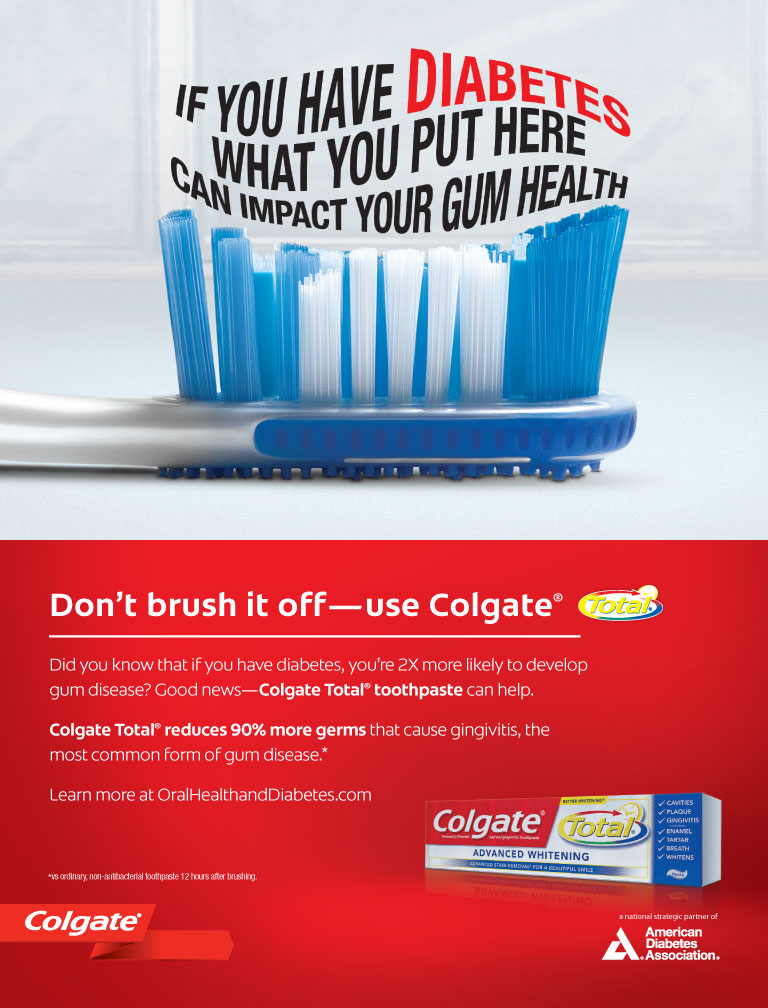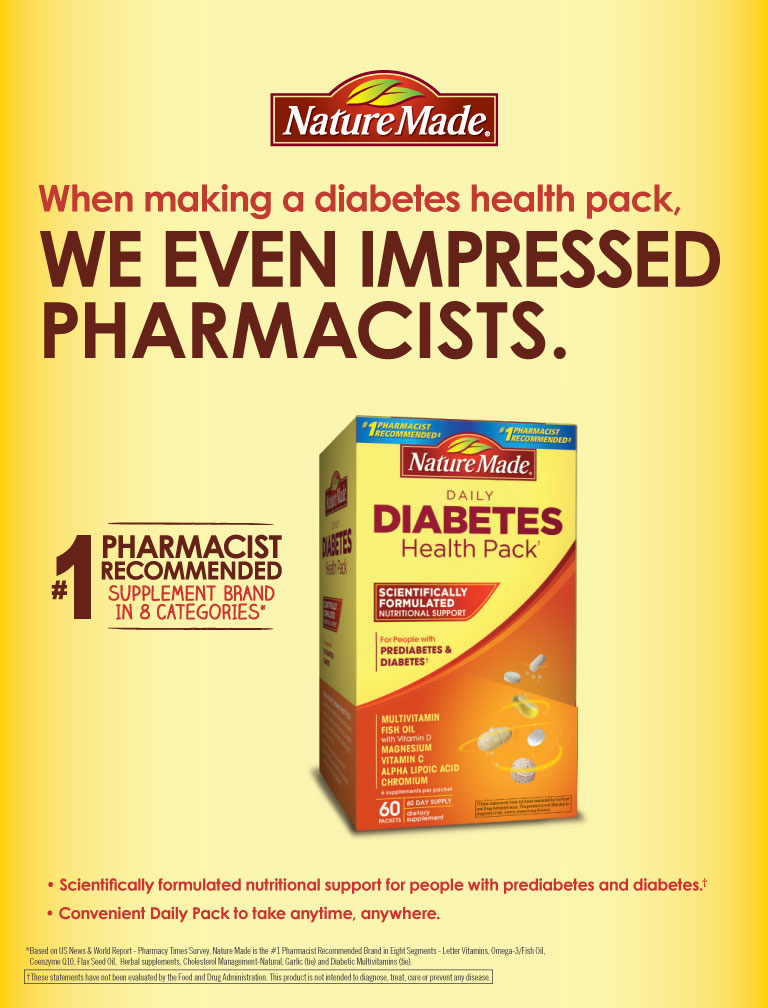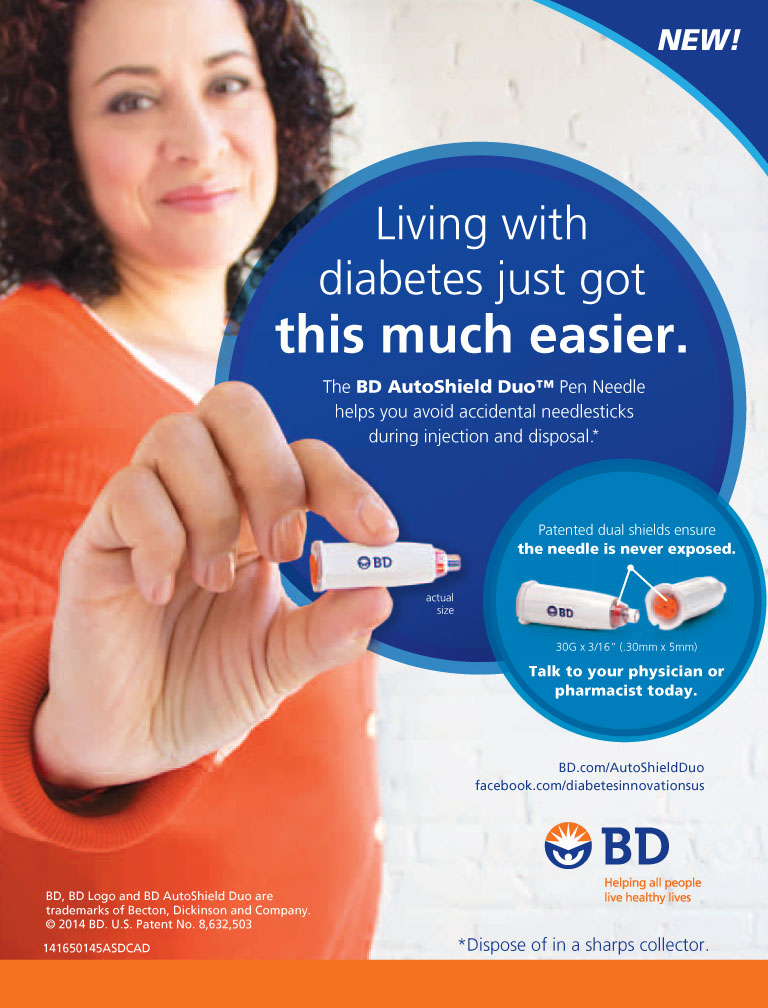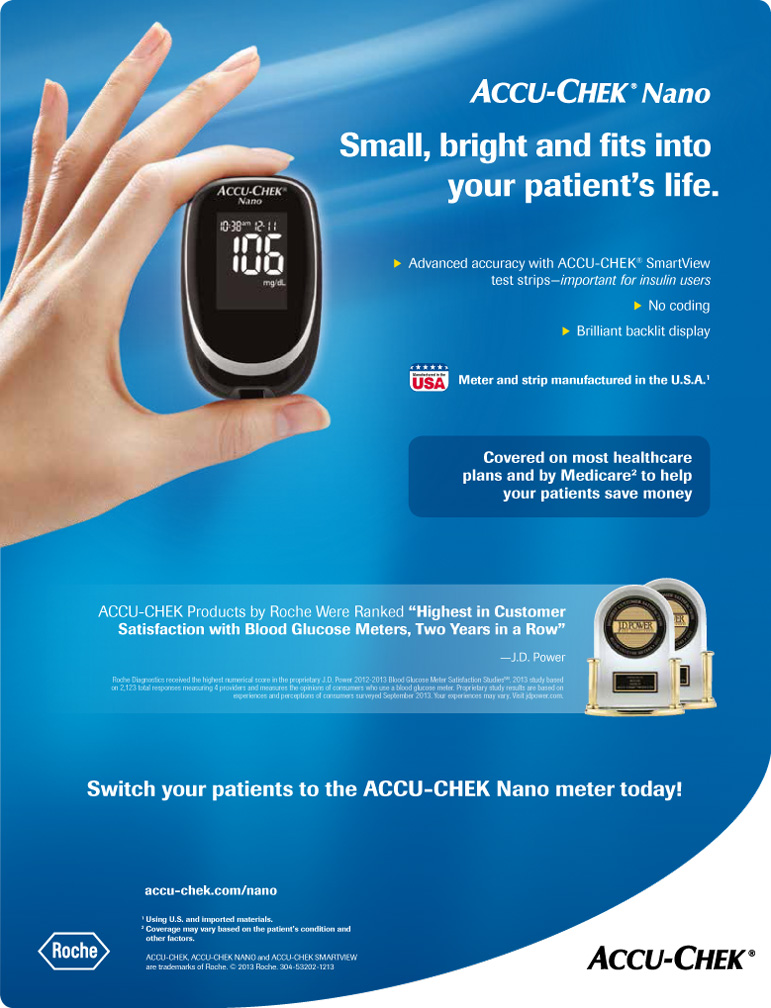
Heart disease is the No. 1 cause of death in both men and women, and people with diabetes are at a higher risk for heart disease than those without diabetes. Even though women and men with diabetes have the same risk of getting heart disease, women and men are different when it comes to heart disease and diabetes in some of the following ways: Signs of a ?Heart ?Attack?for Men ?and Women Chest pain Pain in the ?upper body ?(arm, back, neck) Shortness of breath More Common for Women Nausea Light headedness or dizziness Fatigue Women are less likely to be tested for and ?treated for heart disease than men. Because heart disease was often thought of as a “man’s disease,” it was ignored or treated less aggressively than in women. As heart disease in women gets more attention in the media and more research funding, this belief is changing. Even though men are more likely to be treated for heart disease, some studies show that men are less likely to take medicines as prescribed or follow up with doctor visits and testing. Studies have shown that women with diabetes tend to be heavier and have poorer blood glucose, blood pressure and cholesterol levels than men. This also raises their risk for heart disease. Women may have different symptoms from men when they are having a heart attack. A woman may not know she is having a heart attack as readily as a man who is having chest pain. A woman is less likely to have chest pain and may have back or jaw pain instead, or she may just feel short of breath or nauseated. As you know, the sooner people get help for a heart attack, the greater their chances for survival. The woman and those around them may not realize that it is a heart attack until it is too late. Women who don’t have diabetes tend ?not to get heart disease until after menopause because the hormones made in their bodies before menopause protect them from heart disease. However, women with diabetes don’t have the same protection from these hormones. Therefore, they have lower HDL (good) cholesterol levels, which raises their risk for heart disease. Clinical depression is about twice as common for women and is more common among people with diabetes. Having depression increases the risk for having a heart attack and heart disease. Healthy Advice for Men and Women When it comes to your health, you need to watch out for yourself and make sure your doctor is watching out for you, as well. Keep track of your own blood pressure, cholesterol and A1C levels. Be sure that your levels are checked every year. Ask your healthcare provider what your numbers are and what they mean. Follow through with testing and medicines and keep your blood pressure and blood glucose in their target ranges. There is no getting around the fact that heart disease is a serious concern for both men and women with diabetes. However, more understanding and better treatments mean that both women and men with diabetes are living longer, healthier lives. By Martha Funnell MS, RN, CDE
The post Heart Disease and Diabetes: Men vs. Women appeared first on Summer 2015 Issue | CDiabetes Online Magazine.
]]>
Heart disease is the No. 1 cause of death in both men and women, and people with diabetes are at a higher risk for heart disease than those without diabetes. Even though women and men with diabetes have the same risk of getting heart disease, women and men are different when it comes to heart disease and diabetes in some of the following ways:
Signs of a ?Heart ?Attack?for
Men ?and Women
- Chest pain
- Pain in the ?upper body ?(arm, back, neck)
- Shortness of breath
More Common for Women
- Nausea
- Light headedness or dizziness
- Fatigue
- Women are less likely to be tested for and ?treated for heart disease than men. Because heart disease was often thought of as a “man’s disease,” it was ignored or treated less aggressively than in women. As heart disease in women gets more attention in the media and more research funding, this belief is changing. Even though men are more likely to be treated for heart disease, some studies show that men are less likely to take medicines as prescribed or follow up with doctor visits and testing.
- Studies have shown that women with diabetes tend to be heavier and have poorer blood glucose, blood pressure and cholesterol levels than men. This also raises their risk for heart disease.
-
Women may have different symptoms from men when they are having a heart attack. A woman may not know she is having a heart attack as readily as a man who is having chest pain. A woman is less likely to have chest pain and may have back or jaw pain instead, or she may just feel short of breath or nauseated. As you know, the sooner people get help for a heart attack, the greater their chances for survival. The woman and those around them may not realize that it is a heart attack until it is too late.
- Women who don’t have diabetes tend ?not to get heart disease until after menopause because the hormones made in their bodies before menopause protect them from heart disease. However, women with diabetes don’t have the same protection from these hormones. Therefore, they have lower HDL (good) cholesterol levels, which raises their risk for heart disease.
- Clinical depression is about twice as common for women and is more common among people with diabetes. Having depression increases the risk for having a heart attack and heart disease.
Healthy Advice for Men and Women
 When it comes to your health, you need to watch out for yourself and make sure your doctor is watching out for you, as well. Keep track of your own blood pressure, cholesterol and A1C levels. Be sure that your levels are checked every year. Ask your healthcare provider what your numbers are and what they mean. Follow through with testing and medicines and keep your blood pressure and blood glucose in their target ranges.
When it comes to your health, you need to watch out for yourself and make sure your doctor is watching out for you, as well. Keep track of your own blood pressure, cholesterol and A1C levels. Be sure that your levels are checked every year. Ask your healthcare provider what your numbers are and what they mean. Follow through with testing and medicines and keep your blood pressure and blood glucose in their target ranges.
There is no getting around the fact that heart disease is a serious concern for both men and women with diabetes. However, more understanding and better treatments mean that both women and men with diabetes are living longer, healthier lives.
By Martha Funnell MS, RN, CDE
The post Heart Disease and Diabetes: Men vs. Women appeared first on Summer 2015 Issue | CDiabetes Online Magazine.
]]>
If you have diabetes, you probably know that you are at an increased risk for problems with your eyes, feet, skin?and nervous system. Did you know that diabetes can also cause problems in your mouth? Take Care Of Your Teeth Poor blood glucose control lets bacteria grow easily in your mouth. Having lots of bacteria in your mouth lead to?plaque buildup on your teeth. When this happens, your gums begin to pull away from your teeth, and pockets form between your teeth and gums. These pockets can become filled with germs and small bits of food. The gums then become inflamed and may bleed when you eat or brush your teeth. This condition is called “gingivitis”. Keeping your gums healthy is important because they help to hold your teeth in place. If nothing is done, you can get an infection in your gums that can go on to destroy the bone around your teeth, and they may start to move. Your teeth may fall out or need to be pulled. A recent study at the University of Copenhagen in Denmark looked at the link between oral health and diabetes. The study found that people with good oral health practices, along with a healthy diet and good stress management, had?lower blood glucose levels and healthier teeth and gums. Diabetes: A Major Cause Of Gum Disease There are many causes of gum disease, including smoking, hormonal changes, and certain cancers. Some medicines can?make your mouth dry, which can increase your risk for tooth and gum problems. This is because saliva helps slow the growth of bacteria and keeps your mouth healthy overall. Poorly controlled diabetes can also lead to gum disease. High levels of sugar in saliva make it easy for bacteria to grow there. This is why poorly controlled diabetes is a risk factor for gum disease. Also, diabetes can cause problems with blood flow to your teeth and gums. This makes it harder to repair damage to your gums and fight infection. It is also important to understand that if you develop gum disease from poor oral habits or other reasons, this could make it harder for you to control your diabetes. Other oral problems related to diabetes include: Thrush: this is an infection caused by a fungus that grows in the mouth and throat Dry mouth: this can cause soreness, ulcers, infections and cavities Dental Check-ups Are Important It’s important that you tell your dentist if you have diabetes, and keep them informed of any changes in your condition or medicines. Postpone any non-emergency dental procedures if your blood sugar is not well controlled. What Can You Do To Keep Your Mouth Healthy? The most important thing you can do is control your blood glucose levels. Have dental check-ups every six months?if possible. Avoid smoking and, if you wear dentures, remove and clean them every day. Good blood glucose control can also help prevent or relieve the dry mouth diabetes can cause. Here are some simple tips for a healthy mouth: Keep your blood glucose level under control Brush and floss every day Visit your dentist at least every 6 months. Be sure to tell them that you have diabetes Tell your dentist if your dentures do not fit right, or if your gums are sore Stop smoking. Your healthcare provider or dentist can tell you about what options there are to help you quit Call your dentist if you notice a problem. Take time to check your mouth regularly for any problems. If your gums bleed when you brush or floss, or if you notice dryness, soreness, white patches, or a bad taste in your mouth, contact your dentist right away. Remember, good blood glucose control can help keep your mouth happy and healthy for years to come. 6 Signs Of Gum Disease Red or swollen gums Gums that bleed easily when brushing or flossing Receding gums (pulling away from teeth) Loose teeth, making it hard to bite and chew Constant bad breath Dentures that don’t fit anymore By Robert Ehrman, MD
The post Oral Health And Diabetes appeared first on Summer 2015 Issue | CDiabetes Online Magazine.
]]>
If you have diabetes, you probably know that you are at an increased risk for problems with your eyes, feet, skin?and nervous system. Did you know that diabetes can also cause problems in your mouth?
Take Care Of Your Teeth
Poor blood glucose control lets bacteria grow easily in your mouth. Having lots of bacteria in your mouth lead to?plaque buildup on your teeth. When this happens, your gums begin to pull away from your teeth, and pockets form between your teeth and gums. These pockets can become filled with germs and small bits of food. The gums then become inflamed and may bleed when you eat or brush your teeth. This condition is called “gingivitis”.
Keeping your gums healthy is important because they help to hold your teeth in place. If nothing is done, you can get an infection in your gums that can go on to destroy the bone around your teeth, and they may start to move. Your teeth may fall out or need to be pulled.
A recent study at the University of Copenhagen in Denmark looked at the link between oral health and diabetes. The study found that people with good oral health practices, along with a healthy diet and good stress management, had?lower blood glucose levels and healthier teeth and gums.
Diabetes: A Major Cause Of Gum Disease
There are many causes of gum disease, including smoking, hormonal changes, and certain cancers. Some medicines can?make your mouth dry, which can increase your risk for tooth and gum problems. This is because saliva helps slow the growth of bacteria and keeps your mouth healthy overall. Poorly controlled diabetes can also lead to gum disease.
High levels of sugar in saliva make it easy for bacteria to grow there. This is why poorly controlled diabetes is a risk factor for gum disease. Also, diabetes can cause problems with blood flow to your teeth and gums. This makes it harder to repair damage to your gums and fight infection. It is also important to understand that if you develop gum disease from poor oral habits or other reasons, this could make it harder for you to control your diabetes.
Other oral problems related to diabetes include:
- Thrush: this is an infection caused by a fungus that grows in the mouth and throat
- Dry mouth: this can cause soreness, ulcers, infections and cavities
Dental Check-ups Are Important
It’s important that you tell your dentist if you have diabetes, and keep them informed of any changes in your condition or medicines. Postpone any non-emergency dental procedures if your blood sugar is not well controlled.
What Can You Do To Keep Your Mouth Healthy?
The most important thing you can do is control your blood glucose levels. Have dental check-ups every six months?if possible. Avoid smoking and, if you wear dentures, remove and clean them every day. Good blood glucose control can also help prevent or relieve the dry mouth diabetes can cause.
Here are some simple tips for a healthy mouth:
- Keep your blood glucose level under control
- Brush and floss every day
- Visit your dentist at least every 6 months. Be sure to tell them that you have diabetes
- Tell your dentist if your dentures do not fit right, or if your gums are sore
- Stop smoking. Your healthcare provider or dentist can tell you about what options there are to help you quit
- Call your dentist if you notice a problem.
Take time to check your mouth regularly for any problems. If your gums bleed when you brush or floss, or if you notice dryness, soreness, white patches, or a bad taste in your mouth, contact your dentist right away. Remember, good blood glucose control can help keep your mouth happy and healthy for years to come.
6 Signs Of Gum Disease
- Red or swollen gums
- Gums that bleed easily when brushing or flossing
- Receding gums (pulling away from teeth)
- Loose teeth, making it hard to bite and chew
- Constant bad breath
- Dentures that don’t fit anymore
By Robert Ehrman, MD
The post Oral Health And Diabetes appeared first on Summer 2015 Issue | CDiabetes Online Magazine.
]]>
First, it is important to note that eating a variety of whole foods is a better choice for staying healthy than relying on vitamins or supplements.?Eating lean meats, vegetables, fruits, and whole grains- and limiting fats and sugar — are important for keeping your blood glucose under control. Individual foods can give you many different vitamins, minerals, and nutrients, in one?serving. For example, raspberries contain vitamin C, fiber, and antioxidants. These nutrients, plus all?the food nutrients we have not yet discovered, work?together in your body to ensure that you benefit from all of them. Using vitamins or supplements – which do not have the full range of nutrients that whole foods do — may not?be needed unless you have a specific vitamin deficiency. (“Deficiency” means that your body does not have enough?of an important nutrient.) It’s a good idea to talk to your healthcare provider before taking any vitamin supplements to see if you really need them. Your healthcare provider may want you to take?vitamin supplements if you are: On a low-calorie diet and do?not eat a wide variety of foods On a vegan diet (no meat, fish, eggs or dairy products) Pregnant On a restricted diet because you?have food allergies, kidney disease?or have trouble absorbing nutrients What Vitamins Are The Best? Many people, including those with diabetes, may?need to take vitamin D supplements.?Experts say to take 400 international units (IU) each day. Recent studies suggest that this may not be enough vitamin D. Ask your healthcare provider if you ?should take vitamin D supplements,?and how much to take every day. Why Is Vitamin D So Important For Good Health? Vitamin D might be able to: improve pain and tingling in your legs, feet, hands, and fingers. keep bones healthy and strong help with blood glucose control help ease depression in women with type 2 diabetes. How Can I Get More Vitamin D? Go outside in the sunshine. Sunshine is a great way to get vitamin D. To be safe, first check with your healthcare provider to make sure it’s safe for you to spend time in the sun. Eat more fish and egg yolks. Eat cereals with vitamin D added. Drink milk with vitamin D added. Take Vitamin D supplements if your healthcare provider recommends it. Vitamin D and calcium work together. Ask your healthcare provider if it’s a good idea for you to take Vitamin D with a calcium supplement. What about Chromium, and Vitamins C and E? There are some studies showing that these nutrients might be helpful for blood glucose control or heart health, but more research is needed. News stories over the past few years have reported that chromium might decrease body fat and build muscle without you having to change your eating habits. But, studies have not shown that chromium helps you lose weight. Also, it is not known how much chromium you should take. Fortunately, it is relatively safe. In fact, many healthcare providers tell their patients with diabetes to take chromium supplements. However, don’t take a chromium supplement without first talking with your healthcare team and knowing the correct amount to take. You might damage your kidneys if you take too much chromium. Good food sources of chromium include whole grains, bran cereals, seafood, green beans, nuts, peanut butter, and potatoes. People with diabetes may have lower levels of vitamin C in their bodies. This may be because higher blood glucose levels keep vitamin C out of the body’s cells. In one study, people with type 2 diabetes who took 2,000 mg of Vitamin C every day showed improvement in blood glucose and fat levels. However, more studies need to be done to confirm the benefits for people with diabetes so ask your healthcare provider first before taking vitamin C supplements. Some studies say that vitamin E might help prevent health problems such as heart disease, eye problems and kidney damage. However, it’s too early to know if this is true. In addition, experts are not sure how much vitamin E you should take. Vitamin E amounts greater than 800 IU each chance of stroke in people with high blood pressure. Too much vitamin E can also keep medicines that prevent blood clots from working. If you want to take vitamin E, ask your healthcare provider first about the pros and cons and if you do decide to take vitamin E, do not take more than 200 Tips for Taking Supplements Pick supplements with no more than 100 to 150 percent of the daily value for the listed vitamins and minerals Women who have gone through menopause should choose a supplement without iron Choose a brand that has the USP seal on the package. A USP (U.S. Pharmacopeia) seal says the product has been tested for strength and purity Check expiration dates; do not use expired supplements Keep supplements in a cool, dry place, and out of reach of children. By Robert Ehrman, MD ? Reviewed by Fran Daniel, MPH
The post Vitamins and Diabetes Care appeared first on Summer 2015 Issue | CDiabetes Online Magazine.
]]>
First, it is important to note that eating a variety of whole foods is a better choice for staying healthy than relying on vitamins or supplements.?Eating lean meats, vegetables, fruits, and whole grains- and limiting fats and sugar — are important for keeping your blood glucose under control.
Individual foods can give you many different vitamins, minerals, and nutrients, in one?serving. For example, raspberries contain vitamin C, fiber, and antioxidants. These nutrients, plus all?the food nutrients we have not yet discovered, work?together in your body to ensure that you benefit from all of them. Using vitamins or supplements – which do not have the full range of nutrients that whole foods do — may not?be needed unless you have a specific vitamin deficiency. (“Deficiency” means that your body does not have enough?of an important nutrient.) It’s a good idea to talk to your healthcare provider before taking any vitamin supplements to see if you really need them.
Your healthcare provider may want you to take?vitamin supplements if you are:
- On a low-calorie diet and do?not eat a wide variety of foods
- On a vegan diet (no meat, fish, eggs or dairy products)
- Pregnant
- On a restricted diet because you?have food allergies, kidney disease?or have trouble absorbing nutrients
What Vitamins Are The Best?
Many people, including those with diabetes, may?need to take vitamin D supplements.?Experts say to take 400 international units (IU) each day. Recent studies suggest that this may not be enough vitamin D. Ask your healthcare provider if you ?should take vitamin D supplements,?and how much to take every day.
Why Is Vitamin D So Important For Good Health?
Vitamin D might be able to:
- improve pain and tingling in your legs, feet, hands, and fingers.
- keep bones healthy and strong
- help with blood glucose control
- help ease depression in women with type 2 diabetes.
How Can I Get More Vitamin D?
-
Go outside in the sunshine. Sunshine is a great way to get vitamin D. To be safe, first check with your healthcare provider to make sure it’s safe for you to spend time in the sun.
- Eat more fish and egg yolks.
- Eat cereals with vitamin D added.
- Drink milk with vitamin D added.
- Take Vitamin D supplements if your healthcare provider recommends it.
- Vitamin D and calcium work together. Ask your healthcare provider if it’s a good idea for you to take Vitamin D with a calcium supplement.
What about Chromium, and Vitamins C and E?
There are some studies showing that these nutrients might be helpful for blood glucose control or heart health, but more research is needed. News stories over the past few years have reported that chromium might decrease body fat and build muscle without you having to change your eating habits. But, studies have not shown that chromium helps you lose weight. Also, it is not known how much chromium you should take. Fortunately, it is relatively safe. In fact, many healthcare providers tell their patients with diabetes to take chromium supplements. However, don’t take a chromium supplement without first talking with your healthcare team and knowing the correct amount to take. You might damage your kidneys if you take too much chromium. Good food sources of chromium include whole grains, bran cereals, seafood, green beans, nuts, peanut butter, and potatoes.
People with diabetes may have lower levels of vitamin C in their bodies. This may be because higher blood glucose levels keep vitamin C out of the body’s cells. In one study, people with type 2 diabetes who took 2,000 mg of Vitamin C every day showed improvement in blood glucose and fat levels. However, more studies need to be done to confirm the benefits for people with diabetes so ask your healthcare provider first before taking vitamin C supplements. Some studies say that vitamin E might help prevent health problems such as heart disease, eye problems and kidney damage. However, it’s too early to know if this is true. In addition, experts are not sure how much vitamin E you should take. Vitamin E amounts greater than 800 IU each chance of stroke in people with high blood pressure. Too much vitamin E can also keep medicines that prevent blood clots from working. If you want to take vitamin E, ask your healthcare provider first about the pros and cons and if you do decide to take vitamin E, do not take more than 200
Tips for Taking
Supplements
- Pick supplements with no more than 100 to 150 percent of the daily value for the listed vitamins and minerals
- Women who have gone through menopause should choose a supplement without iron
- Choose a brand that has the USP seal on the package. A USP (U.S. Pharmacopeia) seal says the product has been tested for strength and purity
- Check expiration dates; do not use expired supplements
- Keep supplements in a cool, dry place, and out of reach of children.
By Robert Ehrman, MD ? Reviewed by Fran Daniel, MPH
The post Vitamins and Diabetes Care appeared first on Summer 2015 Issue | CDiabetes Online Magazine.
]]>
Many people with diabetes do not want to start insulin or other injected diabetes medications because they have many fears. Some people fear needles, injection pain or worry about taking a shot. Some people have concerns about the safety or convenience of diabetes injections. Some people even fear that starting injected medications is the “end of the road”. Your community pharmacist can answer your questions about injected diabetes medications and can help you make the right choices to help you achieve your blood glucose goals. We have made great strides in treating diabetes over the last decade. One of the big changes is that insulin and other injectable medications are being prescribed more often and much earlier to improve health. They work very well to manage blood glucose, but they do require an injection. Luckily, most of these medications are now available in pen devices and some manufacturers are continuing to introduce newer, innovative pen needles. The BD AutoShield Duo? Pen Needle is a pen needle for patients who inject diabetes medications at home that may?appeal to people who have fears or concerns about injecting themselves. This pen needle has been used by healthcare?professionals in hospitals for years. The BD AutoShield Duo? Pen Needle has shields on both the front and back of the needle which help avoid accidental needle sticks before and after injecting. The shields also may help make the injection process easier for patients that are anxious about injections because the needle is concealed during the entire process. The BD AutoShield Duo? Pen Needle is also shorter and thinner than many older needles. Some people have been told that they should use longer needles because they are heavy or have thicker skin. But, the latest research shows that new, shorter needles are just as effective as longer needles used in the past and can be used in almost everyone, regardless of sex, weight, or skin thickness1. This is important because longer needles tend to be more painful. And, more importantly, longer needles can accidentally enter into muscle which can lead to lots of changes?in blood sugar levels and may increase pain. Shorter needles are safer and less painful because they enter into the fat tissue right under the skin. The BD AutoShield Duo? Pen Needle also offers some conveniences. It is easier to handle than standard pen needles?which may benefit people with arthritis or reduced dexterity. The short needle length means that you can inject without pinching up your skin,*2 there’s no inner needle shield to remove and the needle does not need to be re-capped to be removed from the pen. This means two less steps in the injection process! If your doctor recommends insulin or another injectable medication for you, ask your pharmacist about the BD AutoShield Duo? Pen Needle. It fits on all leading diabetes pen devices in the U.S. and is covered by most insurance plans. #¥Your pharmacist can help you decide whether it is the right pen needle for you. # Compatible with all leading insulin and GLP-1 pens in the US as of May 2014, ISO-compliant. ¥ Co-pays and preferred status vary by plan. * Patients ages 2-6, those who are extremely lean or with loose skin may require a pinch-up. If using pinch-up: Do not place fingers less than 1 inch (2.5cm) apart. Do not insert the penneedle at an angle towards your fingers. 1. Hirsch et al. Comparative glycemic control, safety and patient ratings. 2.Frid, et al. Diabetes and Metabolism, 2010 Jennifer Trujillo, PharmD, BCPS, CDE | Associate Professor This article is brought to you by?
The post A Diabetes Pen Needle That Helps Avoid Accidental Needle Sticks appeared first on Summer 2015 Issue | CDiabetes Online Magazine.
]]>
Many people with diabetes do not want to start insulin or other injected diabetes medications because they have many fears. Some people fear needles, injection pain or worry about taking a shot. Some people have concerns about the safety or convenience of diabetes injections. Some people even fear that starting injected medications is the “end of the road”. Your community pharmacist can answer your questions about injected diabetes medications and can help you make the right choices to help you achieve your blood glucose goals.
We have made great strides in treating diabetes over the last decade. One of the big changes is that insulin and other injectable medications are being prescribed more often and much earlier to improve health. They work very well to manage blood glucose, but they do require an injection. Luckily, most of these medications are now available in pen devices and some manufacturers are continuing to introduce newer, innovative pen needles.
 The BD AutoShield Duo
The BD AutoShield Duo Pen Needle is a pen needle for patients who inject diabetes medications at home that may?appeal to people who have fears or concerns about injecting themselves. This pen needle has been used by healthcare?professionals in hospitals for years. The BD AutoShield Duo
Pen Needle is a pen needle for patients who inject diabetes medications at home that may?appeal to people who have fears or concerns about injecting themselves. This pen needle has been used by healthcare?professionals in hospitals for years. The BD AutoShield Duo Pen Needle has shields on both the front and back of the needle which help avoid accidental needle sticks before and after injecting. The shields also may help make the injection process easier for patients that are anxious about injections because the needle is concealed during the entire process.
Pen Needle has shields on both the front and back of the needle which help avoid accidental needle sticks before and after injecting. The shields also may help make the injection process easier for patients that are anxious about injections because the needle is concealed during the entire process.
The BD AutoShield Duo Pen Needle is also shorter and thinner than many older needles. Some people have been told that they should use longer needles because they are heavy or have thicker skin. But, the latest research shows that new, shorter needles are just as effective as longer needles used in the past and can be used in almost everyone, regardless of sex, weight, or skin thickness1. This is important because longer needles tend to be more painful. And, more importantly, longer needles can accidentally enter into muscle which can lead to lots of changes?in blood sugar levels and may increase pain. Shorter needles are safer and less painful because they enter into the fat tissue right under the skin.
Pen Needle is also shorter and thinner than many older needles. Some people have been told that they should use longer needles because they are heavy or have thicker skin. But, the latest research shows that new, shorter needles are just as effective as longer needles used in the past and can be used in almost everyone, regardless of sex, weight, or skin thickness1. This is important because longer needles tend to be more painful. And, more importantly, longer needles can accidentally enter into muscle which can lead to lots of changes?in blood sugar levels and may increase pain. Shorter needles are safer and less painful because they enter into the fat tissue right under the skin.
The BD AutoShield Duo Pen Needle also offers some conveniences. It is easier to handle than standard pen needles?which may benefit people with arthritis or reduced dexterity. The short needle length means that you can inject without pinching up your skin,*2 there’s no inner needle shield to remove and the needle does not need to be re-capped to be removed from the pen. This means two less steps in the injection process!
Pen Needle also offers some conveniences. It is easier to handle than standard pen needles?which may benefit people with arthritis or reduced dexterity. The short needle length means that you can inject without pinching up your skin,*2 there’s no inner needle shield to remove and the needle does not need to be re-capped to be removed from the pen. This means two less steps in the injection process!
If your doctor recommends insulin or another injectable medication for you, ask your pharmacist about the BD AutoShield Duo Pen Needle. It fits on all leading diabetes pen devices in the U.S. and is covered by most insurance plans. #¥Your pharmacist can help you decide whether it is the right pen needle for you.
Pen Needle. It fits on all leading diabetes pen devices in the U.S. and is covered by most insurance plans. #¥Your pharmacist can help you decide whether it is the right pen needle for you.
# Compatible with all leading insulin and GLP-1 pens in the US as of May 2014, ISO-compliant.
¥ Co-pays and preferred status vary by plan.
* Patients ages 2-6, those who are extremely lean or with loose skin may require a pinch-up.
If using pinch-up: Do not place fingers less than 1 inch (2.5cm) apart. Do not insert the penneedle at
an angle towards your fingers.
1. Hirsch et al. Comparative glycemic control, safety and patient ratings.
2.Frid, et al. Diabetes and Metabolism, 2010
Jennifer Trujillo, PharmD, BCPS, CDE | Associate Professor
This article is brought to you by?![]()
The post A Diabetes Pen Needle That Helps Avoid Accidental Needle Sticks appeared first on Summer 2015 Issue | CDiabetes Online Magazine.
]]>
Read on for answers to some common questions asked by people with diabetes. ?Why is diabetes so ?common today? People are getting type 2 diabetes at younger ages—even children. No one really knows why, but part of the problem is that as a country we are heavier and less physically active than ever before. ?What is prediabetes? If you have prediabetes, your blood glucose levels are higher than normal but not quite high enough to be diagnosed with diabetes. Prediabetes needs to be taken seriously. People with prediabetes are at high risk for heart disease and type 2 diabetes. Is type 2 more serious ?than type 1 diabetes? That depends on what is meant by more serious. It is true that all people with type 1 diabetes need to take insulin, so type 2 may seem easier to manage. Although many people with type 2 diabetes can manage their diabetes with healthy eating, being active and taking oral medicines, many also take insulin. Both types of diabetes, if not managed, can damage many parts of the body, such as the heart, blood vessels, eyes and kidneys. If nobody in my family has diabetes, why did ?I get it? No one really knows for sure. What we do know is that the risk for diabetes is related to both your genes and your environment, which includes lifestyle. It also could be that one of your family members had diabetes in the days before it was diagnosed as easily, so they may not? have known. Or it may be that the person who passed down the risk to you died of something else before he or she got diabetes. But by helping your children and grandchildren stay at a healthy weight and be active, you may be both the first and the last person with diabetes in your family. Why does my treatment ?for type 2 diabetes ?keep changing? There are two reasons. One is that as more is learned about diabetes and new medicines are discovered, your healthcare provider may suggest a new treatment for you. The other reason is that over time, your body makes less and less insulin. You continue to make some insulin but not enough to keep your blood glucose in the target range. As you make less insulin, your body needs more help to keep your blood glucose where it needs to be. So it is common to add diabetes pills, insulin or other types of injectable medicines as time goes by. This does not mean that you have failed to manage your diabetes well. It just means that your treatment needs to change to keep up with your needs. ?What can I do to keep weight off once I lose it? It is true that it is harder to keep weight off than it is to lose it. When you cut back on calories, your body may respond by slowing down your metabolism so that you use your calories better. This is called the “set-point theory” and it helped to keep people from starving years ago at times when food was more scarce. This ?also means that people who diet ?to reach a certain weight will need fewer calories to maintain that weight than someone who has always been at the very same weight.?Although most of us think that once we lose weight, we don’t have to think about what we eat anymore; that’s not true. Keeping weight off takes work, as well. There are some things you can do that will help. Because you most likely have several types of questions, it is a good idea to add them to a list as you think of them. Your doctor, nurse, dietitian or Costco pharmacist are all good sources of? health information. By Martha Funnell MS, RN, CDE
The post Diabetes Q&A appeared first on Summer 2015 Issue | CDiabetes Online Magazine.
]]>
Read on for answers to some common questions asked by people with diabetes.
Q?Why is diabetes so ?common today?
APeople are getting type 2 diabetes at younger ages—even children. No one really knows why, but part of the problem is that as a country we are heavier and less physically active than ever before.
Q?What is prediabetes?
AIf you have prediabetes, your blood glucose levels are higher than normal but not quite high enough to be diagnosed with diabetes. Prediabetes needs to be taken seriously. People with prediabetes are at high risk for heart disease and type 2 diabetes.
Q Is type 2 more serious ?than type 1 diabetes?
AThat depends on what is meant by more serious. It is true that all people with type 1 diabetes need to take insulin, so type 2 may seem easier to manage. Although many people with type 2 diabetes can manage their diabetes with healthy eating, being active and taking oral medicines, many also take insulin. Both types of diabetes, if not managed, can damage many parts of the body, such as the heart, blood vessels, eyes and kidneys.
Q If nobody in my family has diabetes, why did ?I get it?
ANo one really knows for sure. What we do know is that the risk for diabetes is related to both your genes and your environment, which includes lifestyle. It also could be that one of your family members had diabetes in the days before it was diagnosed as easily, so they may not? have known. Or it may be that the person who passed down the risk to you died of something else before he or she got diabetes. But by helping your children and grandchildren stay at a healthy weight and be active, you may be both the first and the last person with diabetes in your family.
Q Why does my treatment ?for type 2 diabetes ?keep changing?
AThere are two reasons. One is that as more is learned about diabetes and new medicines are discovered, your healthcare provider may suggest a new treatment for you. The other reason is that over time, your body makes less and less insulin. You continue to make some insulin but not enough to keep your blood glucose in the target range. As you make less insulin, your body needs more help to keep your blood glucose where it needs to be. So it is common to add diabetes pills, insulin or other types of injectable medicines as time goes by. This does not mean that you have failed to manage your diabetes well. It just means that your treatment needs to change to keep up with your needs.
Q?What can I do to keep weight off once I lose it?
AIt is true that it is harder to keep weight off than it is to lose it. When you cut back on calories, your body may respond by slowing down your metabolism so that you use your calories better. This is called the “set-point theory” and it helped to keep people from starving years ago at times when food was more scarce. This ?also means that people who diet ?to reach a certain weight will need fewer calories to maintain that weight than someone who has always been at the very same weight.?Although most of us think that once we lose weight, we don’t have to think about what we eat anymore; that’s not true. Keeping weight off takes work, as well. There are some things you can do that will help.
Because you most likely have several types of questions, it is a good idea to add them to a list as you think of them. Your doctor, nurse, dietitian or Costco pharmacist are all good sources of? health information.
By Martha Funnell MS, RN, CDE
The post Diabetes Q&A appeared first on Summer 2015 Issue | CDiabetes Online Magazine.
]]>
Robbie Almeida, a Costco pharmacist in Ann Arbor, Michigan, finally?quit smoking?after 15 years of advising her customers to do the same. This is how she did it. As a pharmacist, Robbie knew about the health benefits of vitamins and other supplements. She also knew that certain vitamins and supplements would help her?quit smoking. “I take a multivitamin. I take triglycerides. I take flaxseed oil, probiotics and CoQ10. And I take a calcium pill.” Robbie tells her customers at Costco pharmacy that wanting to?quit?is the first big step. For Robbie, once she made that decision, the rest followed easily. “Honestly, I just did it cold turkey. I remember I had my last cigarette at my friend’s house, and I was done. I stayed away from smoking areas so I wasn’t tempted or craving or anything like that. I wanted to?quit, so that’s how I did it. Now if I smell cigarette smoke it makes me ill. I don’t like it at all, and I think, ‘Oh, that was really gross.’ How could I have been doing that for so long?” Most people won’t be able to?quit?cold turkey like Robbie, but making that decision is an important first step. Even when she was smoking, Robbie knew that she was harming her health. Like so many people, she started smoking as a teenager. She thought “everyone” was doing it, and it seemed so cool. Then, as a pharmacist, she had to talk to her customers about the risks of smoking and advise them to?quit. It was hard to hear that smoking raises your risk of heart disease and diabetes almost every day. “The health benefits of it all–how does it make sense to put something foreign into our systems? My kids are nine and eight. They don’t remember when I was still a smoker; it’s been over 10 years. But I tell them about it so that they won’t start like I did. I tell them that it doesn’t make any sense. You’re putting something in your body that doesn’t belong there. “There’s disease. There’s pre-mature death. And the sooner you?quit, the sooner your lungs can start to recover. Back when I was smoking, I had pleurisy in my lungs, like there was an infection in the lining. Right now I feel that my lungs are probably close to 100% healthy.” Robbie?quit?soon after finishing pharmacy school. She admits that she smoked through school because of the stress. But learning about lung cancer, heart disease, strokes–she realized that it was time. She also saw what it was doing to her patients. “We measure patients’ lung capacity, and every year or so and I have to talk to the smokers about the benefits of?stopping.?You can tell right away when they blow into the tube and they can’t breathe that they have had decades of smoking. It’s really bad. And then of course they have to rely on drugs, like inhalers, and everything else that goes along with smoking-related diseases, and all that is very costly. So, it doesn’t make any sense. “I’ve had patients come to me with nicotine gum and ask me whether it works or not. I tell them that they have to be willing to quit, because if they’re not, nothing will really work. I haven’t been monitoring exactly how many patches or over-the-counter products people are buying now thanks to their New Year’s resolutions, but more people are coming to the pharmacy and talking to me about?quitting. “I believe in determination. In my mind I was done smoking, so that’s why I was able toquit. It’s up to each individual to realize the benefits of?quitting?and to decide how to do it. A lot of people use the gum or the patch. That’s fine. With the gum, heavy smokers can start off with a higher dosage to decrease the craving, and then gradually decrease the dose as they start smoking less. They taper down until they get to the lower dose and then, hopefully, the cravings won’t be there and they will have?quit.” Family history also plays a role. Robbie’s father smoked until she was born. Like Robbie, he?stopped?before his children saw him smoking. But Robbie’s grandfather smoked and great grandmother also smoked. Robbie’s grandfather died of complications from smoking; most likely, it aggravated his heart disease. Robbie has been taking calcium ever since she finished school to avoid osteoporosis. She wants to keep strong bones so that she’ll be healthy for his children “A lot of older smokers don’t think like that. They are pretty much addicted and they can’t stop. My children are always on my mind. I have to be healthy for them, so everything that I’m doing is so that I can be with them longer.” By?Jonathan Jarashow
The post Quitting Smoking: A Costco pharmacist’s story appeared first on Summer 2015 Issue | CDiabetes Online Magazine.
]]>
 Robbie Almeida, a Costco pharmacist in Ann Arbor, Michigan, finally?quit smoking?after 15 years of advising her customers to do the same. This is how she did it.
Robbie Almeida, a Costco pharmacist in Ann Arbor, Michigan, finally?quit smoking?after 15 years of advising her customers to do the same. This is how she did it.
As a pharmacist, Robbie knew about the health benefits of vitamins and other supplements. She also knew that certain vitamins and supplements would help her?quit smoking.
“I take a multivitamin. I take triglycerides. I take flaxseed oil, probiotics and CoQ10. And I take a calcium pill.”
Robbie tells her customers at Costco pharmacy that wanting to?quit?is the first big step. For Robbie, once she made that decision, the rest followed easily.
“Honestly, I just did it cold turkey. I remember I had my last cigarette at my friend’s house, and I was done. I stayed away from smoking areas so I wasn’t tempted or craving or anything like that. I wanted to?quit, so that’s how I did it. Now if I smell cigarette smoke it makes me ill. I don’t like it at all, and I think, ‘Oh, that was really gross.’ How could I have been doing that for so long?”
Most people won’t be able to?quit?cold turkey like Robbie, but making that decision is an important first step.
Even when she was smoking, Robbie knew that she was harming her health. Like so many people, she started smoking as a teenager. She thought “everyone” was doing it, and it seemed so cool. Then, as a pharmacist, she had to talk to her customers about the risks of smoking and advise them to?quit. It was hard to hear that smoking raises your risk of heart disease and diabetes almost every day.
“The health benefits of it all–how does it make sense to put something foreign into our systems? My kids are nine and eight. They don’t remember when I was still a smoker; it’s been over 10 years. But I tell them about it so that they won’t start like I did. I tell them that it doesn’t make any sense. You’re putting something in your body that doesn’t belong there.
“There’s disease. There’s pre-mature death. And the sooner you?quit, the sooner your lungs can start to recover. Back when I was smoking, I had pleurisy in my lungs, like there was an infection in the lining. Right now I feel that my lungs are probably close to 100% healthy.”
Robbie?quit?soon after finishing pharmacy school. She admits that she smoked through school because of the stress. But learning about lung cancer, heart disease, strokes–she realized that it was time. She also saw what it was doing to her patients.
“We measure patients’ lung capacity, and every year or so and I have to talk to the smokers about the benefits of?stopping.?You can tell right away when they blow into the tube and they can’t breathe that they have had decades of smoking. It’s really bad. And then of course they have to rely on drugs, like inhalers, and everything else that goes along with smoking-related diseases, and all that is very costly. So, it doesn’t make any sense.
“I’ve had patients come to me with nicotine gum and ask me whether it works or not. I tell them that they have to be willing to quit, because if they’re not, nothing will really work. I haven’t been monitoring exactly how many patches or over-the-counter products people are buying now thanks to their New Year’s resolutions, but more people are coming to the pharmacy and talking to me about?quitting.
“I believe in determination. In my mind I was done smoking, so that’s why I was able toquit. It’s up to each individual to realize the benefits of?quitting?and to decide how to do it. A lot of people use the gum or the patch. That’s fine. With the gum, heavy smokers can start off with a higher dosage to decrease the craving, and then gradually decrease the dose as they start smoking less. They taper down until they get to the lower dose and then, hopefully, the cravings won’t be there and they will have?quit.”
Family history also plays a role. Robbie’s father smoked until she was born. Like Robbie, he?stopped?before his children saw him smoking. But Robbie’s grandfather smoked and great grandmother also smoked. Robbie’s grandfather died of complications from smoking; most likely, it aggravated his heart disease. Robbie has been taking calcium ever since she finished school to avoid osteoporosis. She wants to keep strong bones so that she’ll be healthy for his children
“A lot of older smokers don’t think like that. They are pretty much addicted and they can’t stop. My children are always on my mind. I have to be healthy for them, so everything that I’m doing is so that I can be with them longer.”
By?Jonathan Jarashow
The post Quitting Smoking: A Costco pharmacist’s story appeared first on Summer 2015 Issue | CDiabetes Online Magazine.
]]>
When you start to lose weight, you lose some of your stored fat. That may seem like a good thing to you, but your body doesn’t always agree. We used to think fat just sat in your body and did nothing. But we now know that is not true.
The post The Skinny on Weight Loss appeared first on Summer 2015 Issue | CDiabetes Online Magazine.
]]>
The post The Skinny on Weight Loss appeared first on Summer 2015 Issue | CDiabetes Online Magazine.
]]>
Many people with diabetes look to natural products and vitamins for added help with their diabetes. And with good reason—some ?of these products can be very helpful. But some can make your diabetes medicines less effective or ?harm you. Before you try any such products, ask these questions: Does this product work? ?Some companies quote stories from people who loved using their product. But these stories are not the best source of information. After all, you only hear from those for whom it worked. Instead, look for a note from a reliable member of the health care community. Doctors, dietitians and pharmacists know how to check products to see if they work. Is the product safe? ?Watch out for products that claim to have the answer or the cure for diabetes. As of today, there is no cure that you can buy in any store or from the Internet. While some of these products may be harmless, they may not work well or may cause problems when you take them with other medicines. Costco carries a line of vitamins and supplements called Kirkland Signature?. These products are guaranteed to be of equal or better quality than name brands and can be one of the many tools you use to help manage your type 2 diabetes. Talk with your health care provider or Costco pharmacist about whether a natural product is safe for you and is a good value for your money. By Janis Roszler MSFT, RD, CDE, LD/N
The post Are Natural Products Right For You? appeared first on Summer 2015 Issue | CDiabetes Online Magazine.
]]>
Many people with diabetes look to natural products and vitamins for added help with their diabetes. And with good reason—some ?of these products can be very helpful. But some can make your diabetes medicines less effective or ?harm you. Before you try any such products, ask these questions:
Q Does this product work?
A?Some companies quote stories from people who loved using their product. But these stories are not the best source of information. After all, you only hear from those for whom it worked. Instead, look for a note from a reliable member of the health care community. Doctors, dietitians and pharmacists know how to check products to see if they work.
Q Is the product safe?
A?Watch out for products that claim to have the answer or the cure for diabetes. As of today, there is no cure that you can buy in any store or from the Internet. While some of these products may be harmless, they may not work well or may cause problems when you take them with other medicines. Costco carries a line of vitamins and supplements called Kirkland Signature . These products are guaranteed to be of equal or better quality than name brands and can be one of the many tools you use to help manage your type 2 diabetes.
. These products are guaranteed to be of equal or better quality than name brands and can be one of the many tools you use to help manage your type 2 diabetes.
Talk with your health care provider or Costco pharmacist about whether a natural product is safe for you and is a good value for your money.
3 Tips For Safe Use
- Read up about the supplements you want to use, discuss with your health care provider before use and think about what you hope to achieve. Keep track of how you feel and decide if it does what ?you expect it to do.
- Start with a single product—do not begin with more than one at a time. Follow the label guidelines. Make a record of the natural products you use, their brand names, ingredients, doses taken and the dates ?you started.
- Report any side effects to your health care provider and stop using any item if you begin to have problems or side effects.
By Janis Roszler MSFT, RD, CDE, LD/N
The post Are Natural Products Right For You? appeared first on Summer 2015 Issue | CDiabetes Online Magazine.
]]>
Has this ever happened to you: You are using ?your meal plan and keeping your blood glucose levels in the target range. Just when you feel you have it all under control, something happens to stress you out. Almost without thinking, you ?reach for ?your favorite comfort food. You feel better for a while, but then your blood glucose levels go up. So now you feel tired, guilty and even more stressed. You can break this stress-eating cycle. Instead of getting down on yourself or thinking there is nothing you can do to change, you can learn to handle stress in a new way. Food ?and Stress There is nothing wrong with eating during times of stress—the problem is what you eat. Most people don’t choose carrots and celery as a way to ease stress. It’s much more likely that you’ll reach for comfort foods that are often high in carbs, fat and calories, such as potato chips, cookies and ice cream. The foods that you find comforting often go back many years, maybe even to childhood. It can be a tough cycle to break, but by learning more about yourself and making a plan, ?you can do it. Did it Help? The first thing to do is to think about why you use food and how well it is working for you. Think back to when you last ate due to stress. Many people find that food is only a short-term solution. It does not really fix the problem or make the stress go away. In fact, you may feel more stressed. ASK YOURSELF Did eating help? Did I feel better or worse? If I felt better,? for how long? Did eating cause additional stress or make it go away? What could I do instead? ? ? ? 7 Tips For Managing Stress Avoid or get rid of what’s causing it. Change your belief about it. Learn ?new ways to deal ?with it. Take a walk. ?Talk with a good listener. ?Write down your feelings. ?Pray ?and/or ?meditate. One idea is to avoid people or things that are stressful as often as you can. It takes time to feel good about saying “No,” but it may help to remember that it is in your best interest. And you will be more help to others if you are in better health. But even if you can’t get rid of or control the things you find stressful, you do have a choice about how you handle it. Make a Plan One of the reasons people eat when they are stressed is that comfort foods are often not part of their daily meal plan. They end up craving those foods and during stressful times, they reach for them because they feel they deserve it. A way to lessen those cravings is to have small portions of comfort foods routinely so they are less of a treat. A dietitian can help you learn how to fit favorite foods into your meal plan. There are lots of tips for handling stress, but it can be hard to remember these ideas when you are in the middle of a tough situation. One thought is to make a plan when you are not stressed. Being ready for stress with a list ?of things you know will work or want to try can make it easier to use these tips when you need them. Think of it ?as reaching for ?your list instead ?of a cookie. Stress is part of life. So having a plan in place just makes sense. It can help you break the stress-eating cycle and help you feel more in charge of your diabetes and your life. By Martha Funnell MS, RN, CDE
The post Break the Stress-Eating Cycle appeared first on Summer 2015 Issue | CDiabetes Online Magazine.
]]>
The post Break the Stress-Eating Cycle appeared first on Summer 2015 Issue | CDiabetes Online Magazine.
]]>
Talking, eating, kissing, dazzling everyone with your intellect. What don’t you need your mouth for? Your confidence can soar when your mouth is healthy. Also, the health of your mouth is an important step in maintaining the health of your body. Where Does a?Healthy Mouth Begin? First, protect your teeth.?Tooth decay is sneaky, so don’t?give it a chance to attack.?A few basics can help keep?it at bay: Eat a balanced diet. Drink water instead of soda?and other sugary drinks. Healthy Oral Care Habits Start Soft. A soft bristle—or electric—toothbrush?is best. Two minutes, twice a day. Fluoride Is Your Friend. Toothpastes like?Colgate Total? can help prevent cavities with?twice-daily brushing. Flossing. Seriously, just do it. It removes plaque from?surfaces between the teeth where your toothbrush?can’t reach. Mouthwash. Make it count. It’s about more than?fresh breath. A rinse with fluoride and/or antibacterial?actives can provide extra protection for teeth?and/or gums. Keep Up with Checkups. See your dentist at least?twice a year.
The post Why Mouth Health Matters appeared first on Summer 2015 Issue | CDiabetes Online Magazine.
]]>
The post Why Mouth Health Matters appeared first on Summer 2015 Issue | CDiabetes Online Magazine.
]]>









